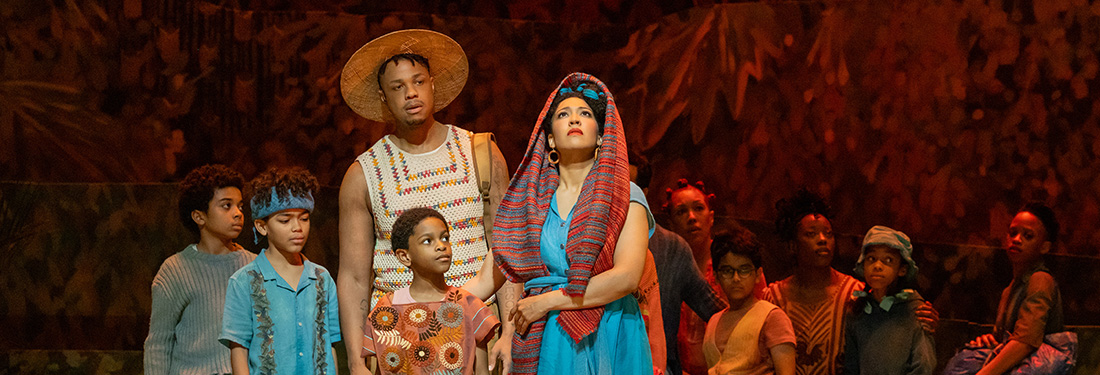
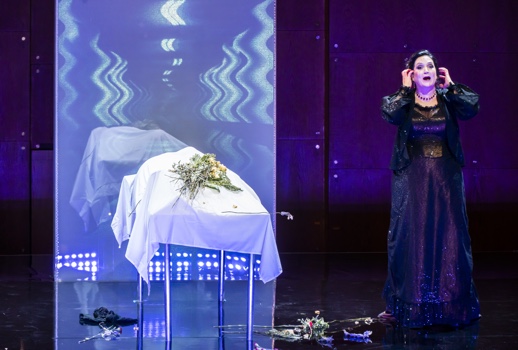
Recently the Philharmonic has put on at least one staged opera per season and its new conductor Jaap van Zweden continued that tradition last year with a brand-new opera, David Lang’s Prisoner of the State.
Although each was written more than a century ago, Schoenberg’s monodrama and Bartok’s two-hander probably also seemed startingly modern to some regular Philharmonic subscribers (one audience member fled just 15 minutes into Erwartung!) but the ovations after both were long and lusty.
The double-bill’s staging which opened with an early Schoenberg song also named Erwartung arrived from the Royal Stockholm Philharmonic Orchestra where it premiered. Both operas were performed on a large ten-foot high platform situated behind the orchestra.
After Stemme’s song, sung next to a harp (thanks to a transcription from the original piano accompaniment) at the front edge of the stage, we got a silent prelude (natch) depicting what looked like a lobotomy performed by the crowd of tuxedoed gentlemen who would eventually retire to chairs on either side of the gurney during Erwartung.
Karnéus then entered clad in a black-sequined gown similar to Stemme’s and like her also carrying a large bouquet. For the remainder of the work she is supposed to be searching for her absent lover but in Bengt Gomér’s staging she scarcely moved more than a few feet from the enshrouded body on the operating table which she occasionally addressed directly.
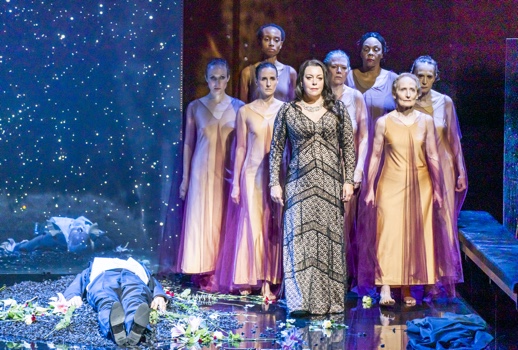
But she was absolutely superb and made Schoenberg’s jagged chaotic vocal lines more hypnotically beautiful that one might imagine. Her strong rich mezzo bit into the character’s increasingly desperate text with fierce intensity and she handled the punishing high passages with blazing ease. She executed the small bits of business devised by Gomér— like briefly brandishing a sword or slashing her wrists (or rather forearms)—compellingly but her dramatic bravura in the end didn’t add up to much especially when she was finally crowned with a golden megaphone which she then used after intermission to deliver Bluebeard’s spoken prologue in boldly mannered English.
For the Bartok the silent male observers were inevitably replaced by seven identically-clad women—the serial husband’s past wives. After Stemme and Kränzle entered the women retired to the chairs to the back though they continued to gesticulate distractingly well into the dialogue between Bluebeard and Judith.
Their hour-length colloquy inevitably presents great challenges to a director as there is little overt action beyond the opening of the castle’s seven doors. Often one gets some splendid coups-de-théâtre as the vistas beyond the doors are revealed but Gomér who served as his own set and lighting designer came up only with a smallish video box (also dully used in Erwartung). Per Rydnert’s tame video designs rarely varied beyond switching into a negative reversal of the previous stream—a botched opportunity.
Thus it was left to the singers’s devices to grip the audience with their perverse “scenes from a marriage.” Stemme who can be a forceful actress in the right circumstances was disappointingly monochrome and just stared blankly ahead for much of the opera.
Little of the shocking revelations that confront Judith were perceivable on her face. Her stentorian singing was striking in its security and powerfully projected volume but otherwise it lacked color and variety. She displayed little chemistry with Kränzle and their one moment of close physical intimacy—a kiss turned wrestling match—drew titters.
High note connoisseurs will want to know that for her big high C moment Stemme strode to the front edge of the platform and socked it out—quite short and perhaps a hair flat.
Kränzle on the other hand delivered a captivatingly nuanced portrait of an aging, exhausted seducer fated to repeat over and over his lethal marrying ways. Tall, gray-haired and bespectacled, his Bluebeard was far from the haunted romantic hero some have envisioned. At 57 (the cast’s average age was 55!), his strongly burnished baritone rang out authoritatively although at moments (as was the case with Gerald Finley earlier this year at the Met) one might have wished for more sheer vocal power at the climaxes.
Surprisingly this Bluebeard was more about his journey than Judith’s—the toll of the consecutive opening of the doors wore more heavily on him, and his ever-shifting moods were riveting to savor. He had been a particularly subtle even touching Beckmesser at the Met five years ago and it’s unfortunate that he’s not returned there since that single Wagner engagement.
Not having attended the Philharmonic since van Zweden took over I was heartened by the excellent performance by the orchestra which can be a recalcitrant animal. Both his Schoenberg and Bartok interpretations reveled in their softer more delicate moments while the savage climaxes cast their spell yet never covered the singers.
For who can’t get to this three-performance run at Geffen Hall, a while back “Trove Thursday” posted a broadcast of an earlier van Zweden Bluebeard that remains available for listening or download.
Photos by Chris Lee
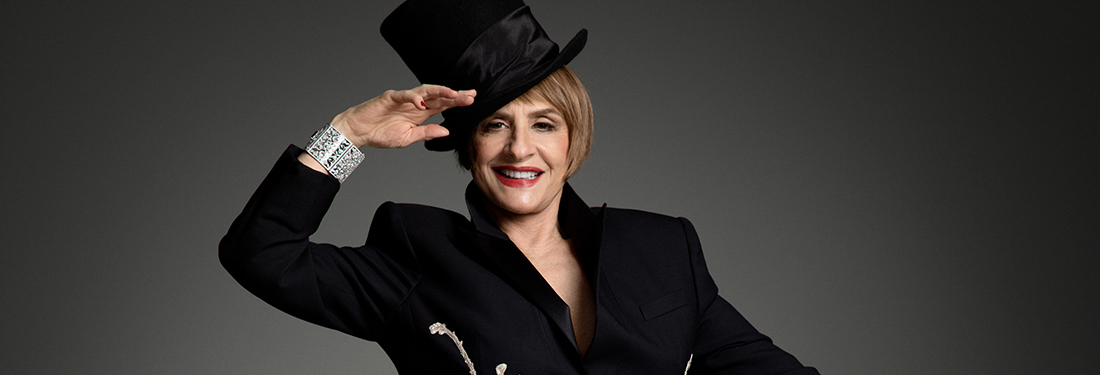
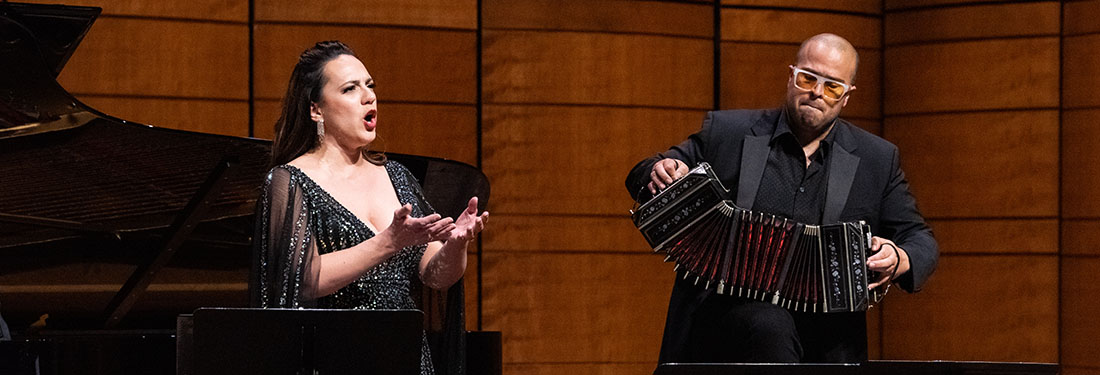
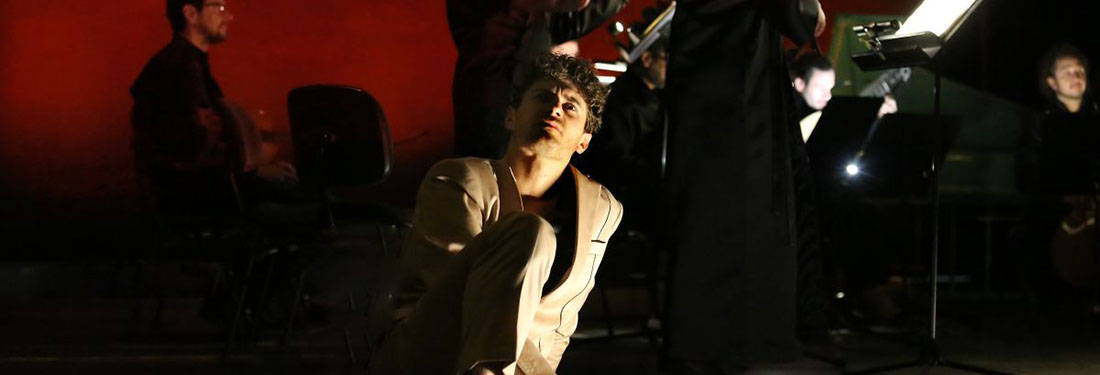
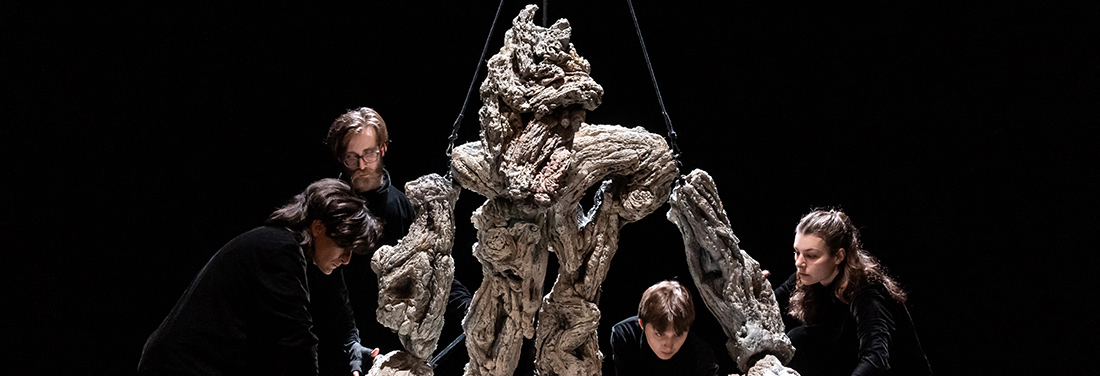
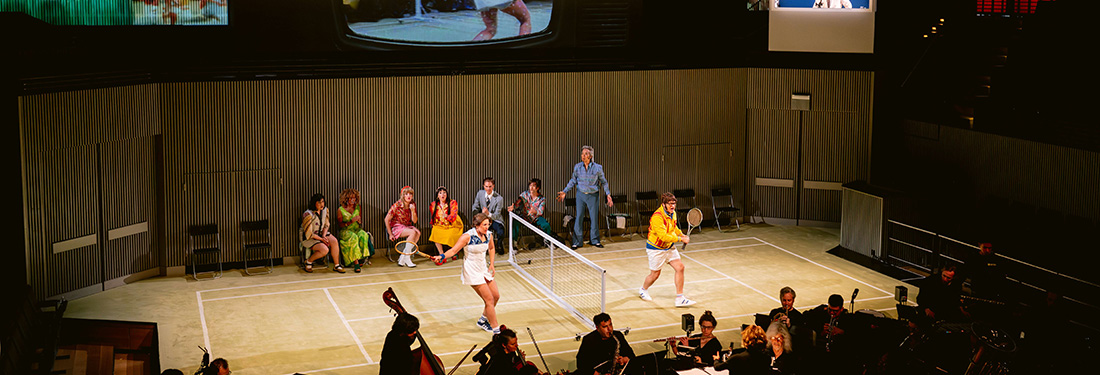
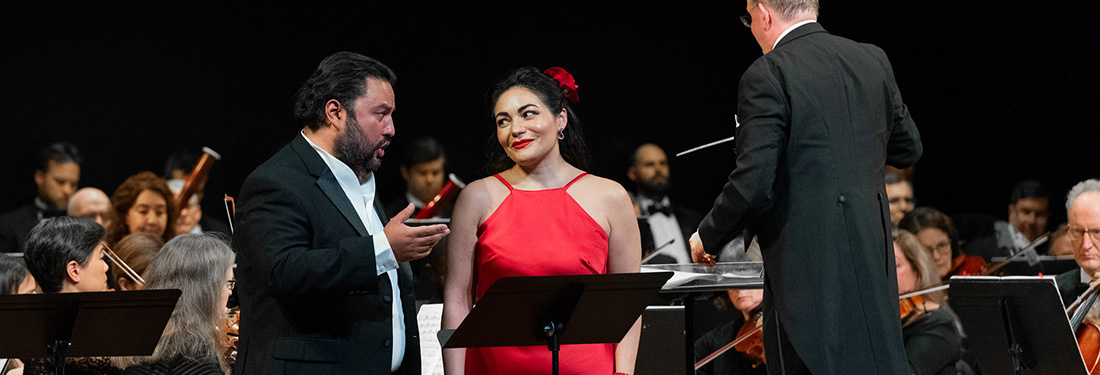
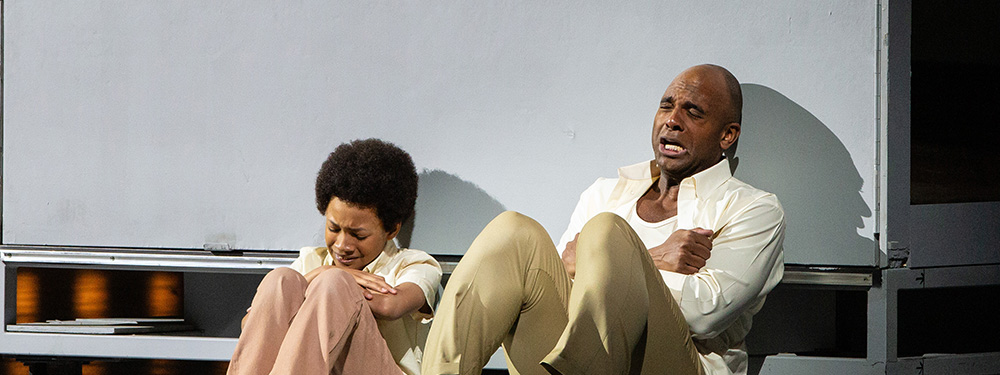
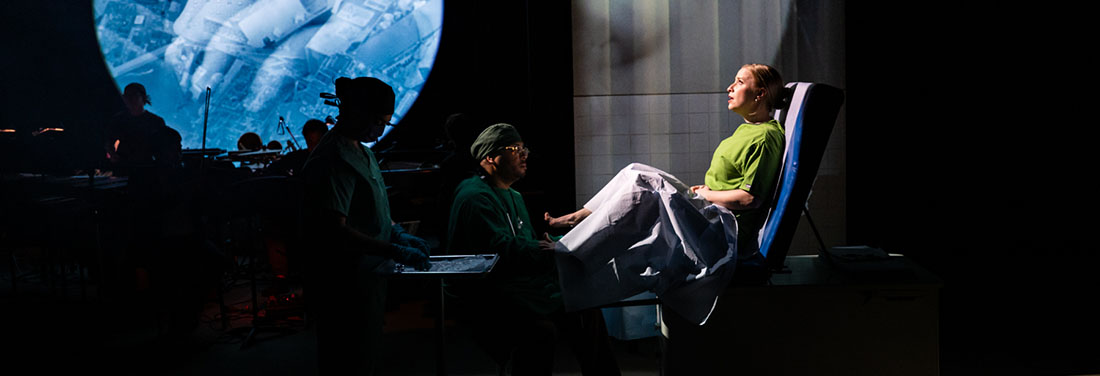
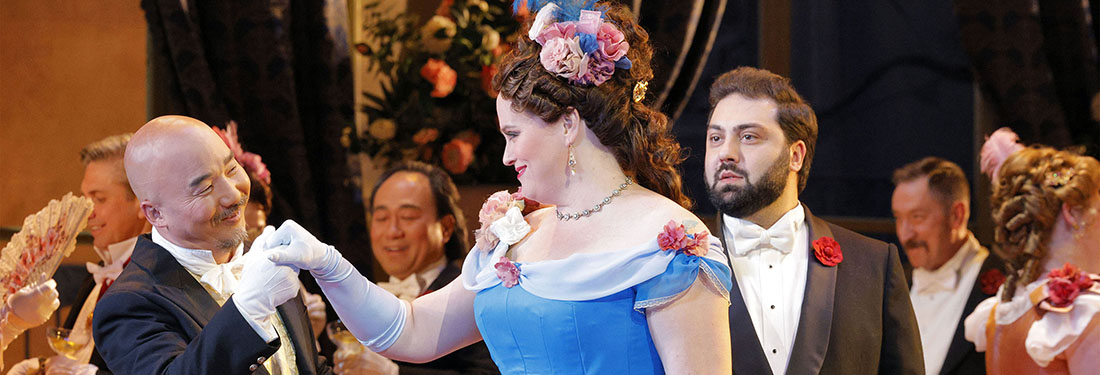
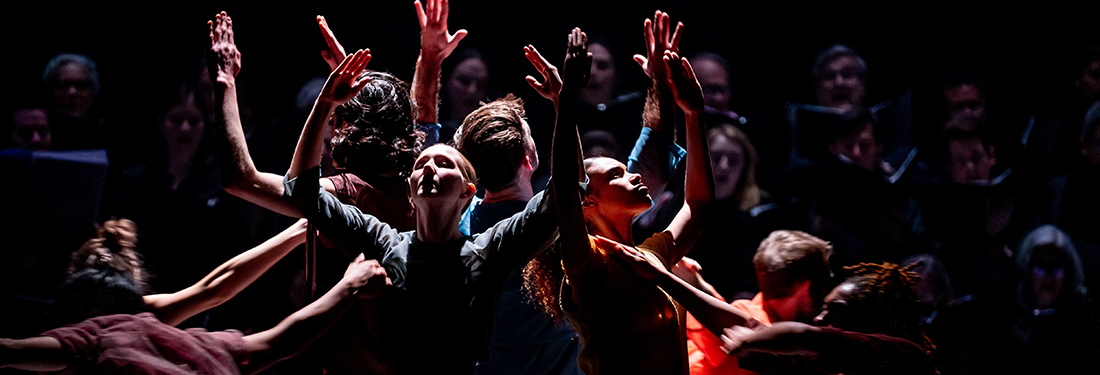
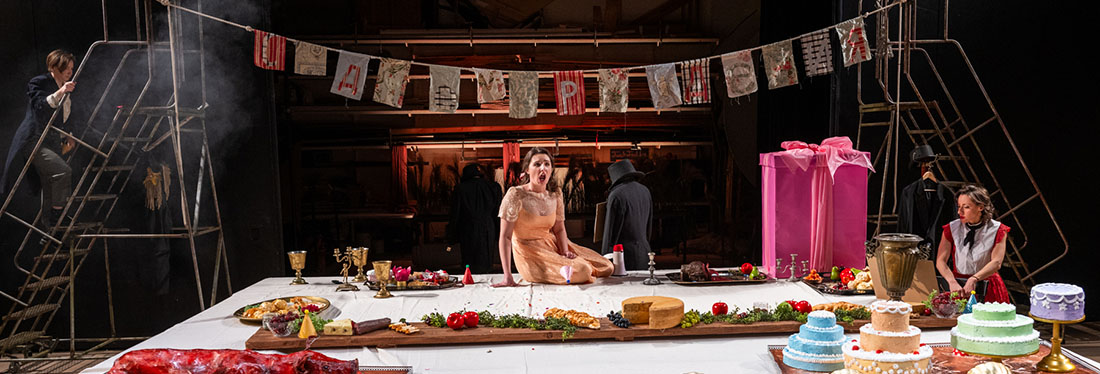
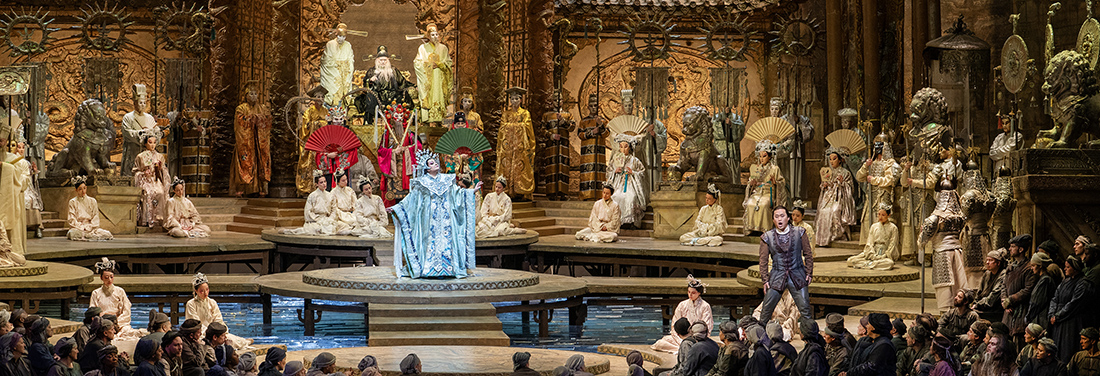
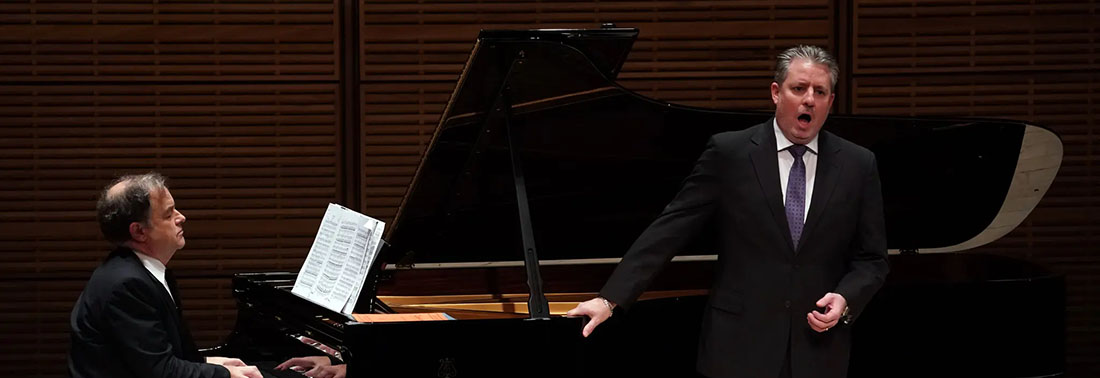
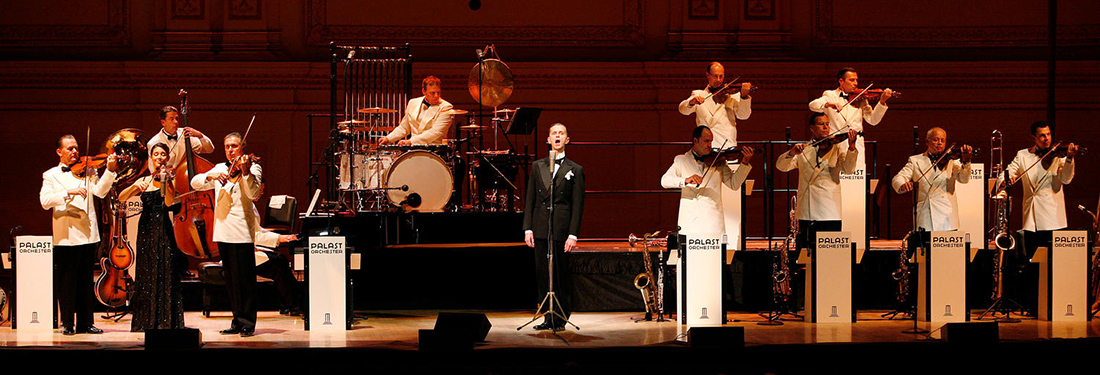
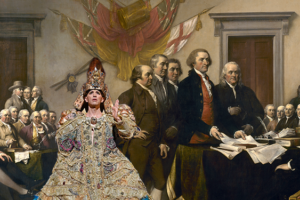
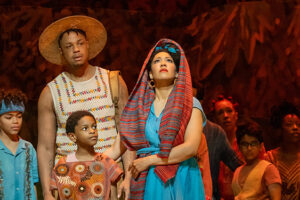
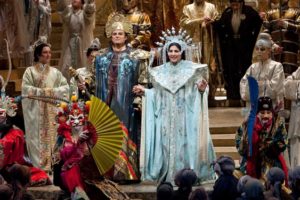

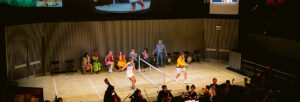
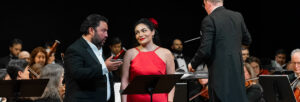



Comments